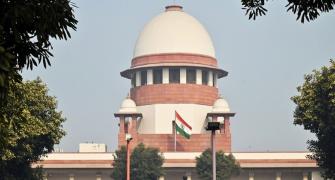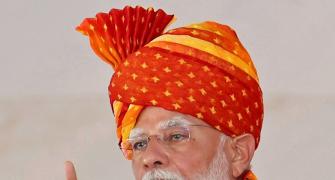India is not a full democracy but a flawed one, according to the Economist Intelligence Unit's 2008 Democracy index. The conclusion is drawn on the basis of the country's performance on 60 indicators which measure electoral process and pluralism, civil liberties, the functioning of government, political participation and political culture.
The Democracy index ranks India 35th out of 167 countries, among other nations considered 'flawed democracies' including Sri Lanka, Thailand, the Philippines, Indonesia, Malaysia and Brazil.
The good news is that with an overall score of 7.8 out of 10, India is close to the category of 'full democracy' nations.
"While India's democracy, in technical terms, is flawed, the country is very close to joining the elite club of full democracies. India's young citizenry needs to engage with politics more actively and constructively in order to create a favourable democratic culture in the country. India is already well ahead of most emerging economies," says Manoj Vohra, Director of Research with the Economist Intelligence Unit."
Electoral process, civil liberties categories, a vibrant free press and pluralistic society help India fare well. In these categories, India scores higher than older 'full democracies' including the United States and the United Kingdom.
However, India's scores take a beating in the category of political participation and political culture. The Economist Intelligence Unit points out that though the average voter turnout in the 2004 Lok Sabha polls was 58 per cent, only 35 per cent voters turned up to exercise their franchise in the troubled state of Jammu and Kashmir and a whopping 92 per cent cast their votes in Nagaland.
The index also points out that "unwieldy and sometimes uncooperative coalitions" often hinder economic reforms. Though government functioning scores decently, corruption and lack of government accountability drags down the score in this category.
Economist Intelligence Unit further predicts that the global recession will only have a minor impact on India's democracy. So far, the economic downturn has had a smaller impact on India than most countries, and it is unlikely to affect the functioning of democracy.
Pointing out that the economic boom of the last few years had failed to reach the majority of India's rural population; the Economist Intelligence Unit states that the downturn will also not affect them.
"Other issues, such as consumer price inflation and national security, would have been far more likely to prompt an increase in social unrest than a broad-based cyclical economic downturn," says Vohra.
The Economist Intelligence Unit's democracy index covers 167 countries and territories. The index, on a 0-10 scale, is based on the ratings for 60 indicators grouped into five categories: electoral process and pluralism, civil liberties, the functioning of government; political participation and political culture.
Each category has a rating on a 0-10 scale, and the overall index of democracy is the simple average of the five category indices.
Countries which manage to score between 8 and 10 are declared 'full democracies', nations scoring between 6 and 7.9 are 'flawed democracies', a score between 4 and 5.9 makes the nation a 'hybrid regime' and nations which score below 4 are 'authoritarian regimes'.







